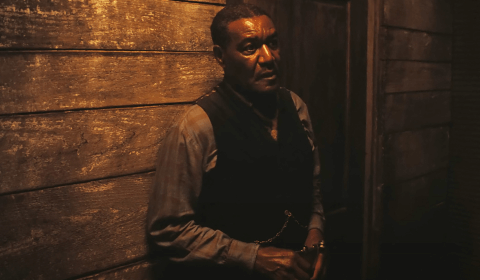Months after the movie was infamously pulled, business owners in Glasgow are still getting the short end of the stick from film sets.
After sinking £75 million and countless hours into the blockbuster Batgirl movie, Warner Bros shocked many by pulling the plug last summer.
Not only had the movie already been filmed (a massive endeavor that saw Glasgow’s streets transformed into Gotham for almost half a year), it had even been edited and shown in test screenings. According to Warner Bros, the test screening’s poor receptions were to blame.
Scotland as a film location is up and coming. It’s normally relatively inexpensive for big film productions to shoot there, boasting impressive architecture, scenery, and talent. While this represents a lot of potential for Scottish creatives, as well as for the economy, there are downfalls too.
Considerations on community impact especially have a long way to catch up.
In Glasgow, news of the cancellation caused an uproar in the aftermath of filming. Local news quickly jumped on the fact that Glasgow City Council had offered Warner Bros a grant of £150,000 to film there, even though businesses located near filming spots had missed out on months of profit. And all this without the glory (or tourism!) that the movie’s release was meant to bring.
To get more info, I spoke to a crew member from the film-set. They described a disorganized operation, often understaffed due to miscommunication.
Reportedly, some crew members started work without contracts. Payment, promised weekly, was often several weeks late. Although residents in film-spots were supposed to receive contracts detailing when they could enter and what was expected of them (for example, if cars had to be moved), contracts were allegedly missing information, with one group of residents finding their cars towed without warning.
Public reception to the crew was also mixed.
‘I remember when I was working on the set there were normal people who were really interested, they were like this is […] brilliant for Glasgow and then other people who were like, this is a […] joke, it’s ruining the city I can’t get around anywhere,’ my contact explained.
Despite the chaos of the set, they emphasized that the work it had brought to the city seemed worth the council’s grant, and that workers were paid eventually.
Most likely is that businesses within filming areas were the worst hit, as they were not able to claim back more than £1000 a week for lost income (often the real amount of compensation given was much lower).
For many, compensation represented 10% or less than what they would normally bring in. Stretched over months of filming, a number of shop owners struggled to pay rent, staff, and make ends meet. But if we want more movies set in Scotland (and the work it brings), is this just the nature of the beast?




















